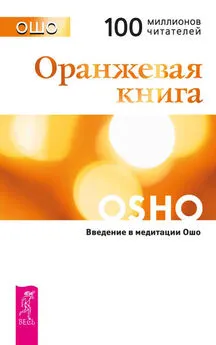Бхагаван Раджниш (Ошо) - Послания любви. 365 писем Ошо
- Название:Послания любви. 365 писем Ошо
- Автор:
- Жанр:
- Издательство:Array Литагент «Весь»
- Год:2012
- Город:СПб
- ISBN:978-5-9573-2446-1
- Рейтинг:
- Избранное:Добавить в избранное
-
Отзывы:
-
Ваша оценка:
Бхагаван Раджниш (Ошо) - Послания любви. 365 писем Ошо краткое содержание
Речь Ошо необыкновенно поэтична. Чтобы читатель прочувствовал ритм и неповторимый стиль великого мастера, в книге, помимо перевода, приведен оригинальный английский текст. Исполненные тепла и любви, где каждая фраза наполнена глубоким смыслом, эти письма будут вашим другом и помощником в познании себя.
«Суть не в том, что вы слушаете, но как вы слушаете – потому что послание повсюду, повсюду, повсюду» (ОШО).
Ранее книга выходила под названием «Чашка чая. 365 писем Ошо».
Послания любви. 365 писем Ошо - читать онлайн бесплатно ознакомительный отрывок
Интервал:
Закладка:
In a certain town lived a Brahmin named Seedy
who got some barley meal by begging,
ate a portion,
and filled a jar with the remainder.
This jar he hung on a peg one night,
placed his cot beneath it
and fixing his gaze on the jar
fell into a hypnotic reverie.
Well, here is a jar of barley meal, he thought.
Now if a famine comes
I will get a hundred rupees for it.
With that sum I will get two she-goats:
every six months they will bear two more she-goats.
After goats, cows.
When the cows calve I will sell the calves.
After cows, buffaloes.
After buffaloes, mares.
From the mares I shall get plenty of horses.
The sale of these will mean plenty of gold.
The gold will buy a great house with an inner court.
Then someone will come to my house
and offer his lovely daughter with a dowry.
She will bear a son whom I shall call Moonlord.
When he is old enough to ride on my knee I will take a book,
sit on the stable roof and think.
Just then Moonlord will see me,
will jump from his mother’s lap
in his eagerness to ride on my knee
and will go too near the horses.
Then I shall get angry and tell my wife to take the boy
but she will be too busy with her chores
and will not pay attention to what I say.
Then I will get up and kick her!
Being sunk in his hypnotic dream
he let fly such a kick that he smashed the jar
and the barley meal it contained made him white all over.
229. Love.
Go on discarding: not this, not this ( neti, neti ),
and ultimately when nothing remains to be discarded –
then the explosion happens.
Do not cling to anything, to any thought.
Go on and on until the nothingness .
I have heard about a little boy, Toyo, and his meditations.
He was only twelve years old
but he wanted to be given something to ponder on,
to meditate on,
so one evening he went to Mokurai, the Zen master,
struck the gong softly to announce his presence,
and sat before the master in respectful silence.
Finally the master said: Toyo, show me the sound of two hands.
Toyo clapped his hands.
Good, said the master.
Now show me the sound of one hand clapping.
Toyo was silent.
Finally he bowed and left to meditate on the problem.
The next night he returned and struck the gong
with one palm.
That is not right, said the master.
The next night Toyo returned and played geisha music with one hand.
That is not right, said the master.
Again and again Toyo returned with some answer
but the master said again and again, That is not right.
For nights Toyo tried new sounds
but each and every answer was rejected.
The question itself was absurd so no answer could be right.
When Toyo came on the eleventh night,
before he said anything the master said:
That is still not right!
– then he stopped coming to the master.
For a year he thought of every possible sound
and discarded them all,
and when there was nothing left to be discarded any more
he exploded into enlightenment.
When he was no more, he returned to the master
and without striking the gong he sat down and bowed.
He was not saying anything
and there was silence.
Then the master said: So you have heard the sound without sound!
230. Love.
Thought is divisive,
it divides ad infinitum ,
so thought can never come to the total, to the whole .
And the whole is while the parts are not –
or they are only for the mind –
and if there is no mind then there are no parts.
With the mind and because of the mind
the one becomes many – or appears so;
and with the mind and through the mind,
to conceive the one is impossible.
Of course it can think about the one ,
but that one is nothing but a putting together of all the parts,
and that one is quite different from the one which is.
The one which is conceptualized by the mind
is just a mathematical construct:
it is not a living whole,
it is not organic,
and unless one experiences the cosmos as
an organic whole
one has not known anything at all.
This is not possible with thought,
but this is possible with no-thought .
231. Love.
Emptiness is all –
and to get hold of emptiness is to attain all and be all.
But it is very arduous to get hold of emptiness –
because it is emptiness! And it hurts much –
though it is emptiness, it still hurts much!
Because to make way for it the ego has to die .
But I am happy that you are dying
because this is the only way to be beyond death –
I say: the only way.
Remember this always.
Sekkyo once said to one of his monks:
Can you get hold of emptiness?
I will try, said the monk; and he cupped his hands in the air.
That is absurd, said Sekkyo.
You have not got anything in there.
Well, master, said the monk, please show me the right way.
Thereupon Sekkyo seized the monk’s nose and gave it a great yank.
Ouch! yelled the monk. You hurt me!
I cannot help it,
because that is the only way to get hold of emptiness!
said Sekkyo.
232. Love.
Man asks questions and then answers them himself.
Nothing is answered in this way.
But man is capable of deceiving himself –
and the whole of philosophy
is nothing but such a deception.
Man asks: What is mind?
And then answers himself: Not matter?
And then asks: What is matter?
And then answers: Not mind?
And this stupid game goes on.
I have heard about a distinguished philosopher
who always began his speeches with: Why are we here?
He had occasion to address the inmates
of a mental hospital
and ended with: Ladies and Gentlemen, why are we here?
One of the inmates called out:
We are all here because we are not all there!
233. Love.
The mind always thinks in terms of the self.
It is egocentric.
During the French revolution
a man from Paris stopped at a village
and was asked by a friend what was happening.
They are cutting off heads by the thousands,
said the visitor.
How terrible! cried the villager.
That could ruin my hat business!
But this is the way of the mind,
and because of this it is never in tune with the cosmos,
so how can it know life ?
It cannot know it because it cannot be one with it.
Really with the mind there is no knowing
but only superficial acquaintance.
Intimate and deep knowing comes only with no-mind –
and meditation is the dissolving of mind into no-mind.
234. Love.
A monk asked Hyakujo Yekai:
What is the most miraculous event in the world?
Hyakujo said: I sit here all by myself !
235. Love.
Freedom from becoming means freedom for being.
Becoming is desiring,
being is that which is .
Becoming is longing for the future,
being is to be in the present.
Becoming is mental,
being is existential.
That is why becoming must cease for the being
to reveal itself.
Becoming is just like the smoke around the flame,
or just like the outer covering around the seed,
so please let the smoke go
for the flame to explode in its complete glory
and splendor,
and let the seed die to its outer shell
so that it may be what it is in its innermost depth.
236. Love.
No more principles are needed.
The world is already much too burdened with principles
and people who are men of principle.
I have heard that once a priest was consoling a widow.
He said with much feeling that her dead husband
was a man of principle.
That he was, sighed the widow.
Every Saturday night for these past twenty years
the poor man would come home
and faithfully hand me his pay envelope –
he never missed doing that.
Of course the envelope was always empty,
but mind you,
he was loyal to the principle of the thing.
237. Love.
Religion is – living without conflict,
that is, without ideas
and without ideals,
because whenever one lives with ideals
there is conflict,
there is conflict between
that which is and that which should be,
and then life is misery.
See this and go beyond.
In fact the very seeing of the fact is going beyond.
And please do not ask the seemingly inevitable, “How?”
Because there is no how to it.
Either you see it or you do not see it –
and moreover the how again creates conflict.
238. Love.
Bhakti needs only time to absorb the shock she
has come across
in her deep meditations;
remember – only time and nothing else.
The shock is nothing new.
It happens whenever the deeper layers of the unconscious
are encountered.
Before any mutation this is absolutely necessary.
Be grateful to the divine because this is a good omen.
Bhakti needed it badly,
and when she is out of it she will be a totally new person.
Soon she will be twice-born.
At present she is passing through a great spiritual crisis,
so you be with her – but just as if you are not .
Be present, but with absolute absence.
This is the only way you can be helpful to her.
Let her be alone as much as possible.
Do not talk with her
except where it is needed absolutely,
and then too be telegraphic.
But if she herself wants to talk
let her talk as much as she likes,
and you yourself just be a passive listener.
Let her do whatsoever she wants to do or not do
and soon everything will be okay.
Do not worry at all.
I will always be there beside you –
and if you can see, you will be able to see me also.
Of course Bhakti will feel my presenceand become aware
of me so many times in these days. Convey my blessings to her.
239. Love.
One day a man came to the Sufi teacher, Bahauddin.
He asked for help in his problems
and guidance on the path.
Bahauddin told him to abandon spiritual studies
and to leave his court at once.
A kind-hearted visitor began to remonstrate
with Bahauddin.
You shall have a demonstration, said the master.
At that moment a bird flew into the room
darting hither and thither,
not knowing where to go in order to escape.
The master waited until the bird settled
near the only open window
of the chamber and then suddenly clapped his hands.
Alarmed, the bird flew straight
through the opening of the window
to freedom.
To him that sound must have been something of a shock,
even an affront, do you not agree? said Bahauddin.
240. Love.
Fu Ta Shih says:
Each night one embraces a Buddha while sleeping,
each morning one gets up again with him.
Rising or sitting –
both watch and follow one another
Speaking or not speaking –
they are in the same place.
They never part even for a moment
but are like the body and its shadow.
If you wish to know the Buddha’s whereabouts,
in the sound of your own voice
there he is .
Do you understand this?
Читать дальшеИнтервал:
Закладка:










